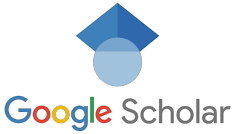Reach-Out Project: Bridging Classroom and Society for TVET Sustainable Development
Abstract
To meet today's intensively competitive and global marketplace challenges, education providers need to produce a dynamic teaching and learning approach that is at par with the global requirements. Reach-Out Project: Bridging Classroom and Society is an initiative that is carried out to develop students who are holistic and balanced, and who are readily marketable once they graduate. This project is an adaptation that emerged from the idea of constructivist, Conceive-Design-Implement-Operate (CDIO) education model and the 21st Century Learning Framework which are aligned with the direction of IR4.0 and Society 5.0 that are closely linked to the Malaysian TVET framework. The Reach-Out Project focuses on teaching and learning in real-world and real-time practice in the real-context of the community. Subsequently, the project engages students to active learning that is aligned with clear learning outcomes, integrated curriculum strategy, integrated learning experience, design-implement experience and skills assessment which are applied through teamwork and collaboration in order to develop in-depth content insights and competencies. Reach-Out Project requires students to be actively involved in the process of teaching and learning – an approach that has moved from the conventional mode of one-way instruction to a more dynamic implementation, whereby students directly interact and collaborate with various people at different levels to find issues and solve them in teams. Consequently, the delivery method has transformed from simulated-problem-based projects in the classroom to a dynamic approach of real-life problem-solving with societal-based projects set in a real-context of community. For sustainable development, this initiative aims to redesign the delivery method to provide a dynamic practice, and integrate activities to obtain optimum practice and time for effective TVET practices.
Downloads
Published
How to Cite
Issue
Section
License
Copyright (c) 2023 Politeknik & Kolej Komuniti Journal of Social Sciences and Humanities

This work is licensed under a Creative Commons Attribution-NonCommercial-NoDerivatives 4.0 International License.





